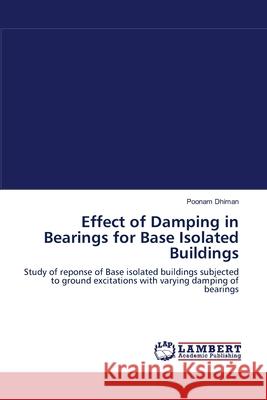Effect of Damping in Bearings for Base Isolated Buildings » książka
Effect of Damping in Bearings for Base Isolated Buildings
ISBN-13: 9783659002403 / Angielski / Miękka / 2012 / 100 str.
Base isolation is a one of the modern earthquake combating techniques in which the superstructure is decoupled from the foundation with the help of some isolation device. Base isolation reduces the demand on superstructure enabling use of lighter structural members. The magnitude of earthquake forces transferred to the superstructure can be affected by varying damping in bearings. An effort is made to study the effect of damping and end-conditions in bearings on the response of a base isolated four-storey RC frame to lateral forces. Damping in bearings is varied from 5% to 40% and response of the structure is compared in terms of period shift, base shear, storey drift and acceleration with those of an equivalent fixed base frame. The base isolated frame is studied with fixed and hinged boundary conditions of base isolation device. The response of base isolated frames has shown a significant reduction as compared to fixed base frame. Rate of response reduction is high with up to 20% damping in bearings. Beyond 20% damping, the rate of response reduction is insignificant.











